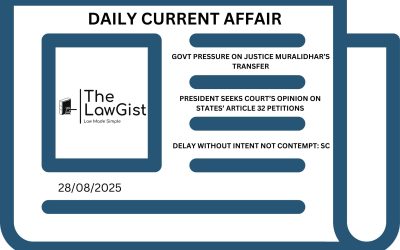The most important ICC Trophy Final has finally reached the day of March 9, 2025. India versus New Zealand in Dubai is going to take place. But off-field controversies put out the fire of this exciting tournament, where Pakistan accuses India of influencing its decision to go to ICC; England complains about the imbalance in finances, while governance issues continue to add fuel to the fire. ICC and BCCI play an important role in conducting any match.
ICC and BCCI are dealing with their different laws framed for cricket in international and India respectively. For ICC, it operates as the global governing body-everything has to follow their rules for international competitions. The BCCI is more or less autonomous as a body, doing everything under the legal boundaries of India. Then the two bodies combined will either create global cricket policy, financial model, and dispute resolutions or raise potential conflicts.
ICC Legal Framework
1. Structure and Governing Laws
The ICC operates under a complete legal framework under international cricket affairs. It is registered as a non-profit organization in Dubai, UAE, and is governed by statutes that govern the decision-making, finances, and organization of tournaments.

The ICC Trophy Final 2025 brings intense cricket action as India faces New Zealand in Dubai, set against off-field controversies shaping the future of global cricket.
- ICC Constitution: Outline the roles, responsibilities, and powers of the International Cricket Council’s associate members, full members, and members.

The ICC Trophy Final 2025 brings intense cricket action as India faces New Zealand in Dubai, set against off-field controversies shaping the future of global cricket.

- Code of Conduct: Protects fair play and ethical behavior and provides for penalties for misconduct.
- Dispute Resolution Mechanism: ICC is empowered to operate an arbitration panel to resolve disputes between cricket boards and other stakeholders.
- Anti-Corruption Code: Inhibiting all types of match-fixing, betting, and dishonest practices.
- Anti-Doping Regulations: Provides for an environment drug-free competition according to WADA regulations.
- Tournament Regulations: Guide the hosting, scheduling, and financial allocation of ICC events like the World Cup, T20 World Cup, and Champions Trophy.
2. Revenue Distribution and Financial Model
The ICC follows a revenue-sharing model, where the funds generated from broadcasting rights, sponsorships, and ticket sales are distributed among member nations. Under the latest financial model:
- India receives 38.5% of ICC’s total revenue due to its dominant contribution to global cricket’s financial ecosystem.
- Other full members receive varying percentages based on their contributions and performances.
3. Venue Selection and Hosting Rights
ICC’s legal framework dictates venue selection, considering factors like security, financial viability, and political considerations. The hybrid model, introduced for the 2025 Champions Trophy, was a response to India’s refusal to play in Pakistan, showcasing the ICC’s adaptation to geopolitical realities.
4. Legal Controversies and Challenges
- Geopolitical Tensions: India-Pakistan cricket relations impact ICC tournament structuring.
- Broadcasting Rights Disputes: Legal challenges arise over revenue-sharing and media rights agreements.
- Player Eligibility and National Allegiance: ICC’s nationality laws govern player representation.
- Governance and Power Imbalance: Allegations of India’s overreach in ICC decision-making.
BCCI Legal Framework
1. Legal Status and Structure
The BCCI is an autonomous body, registered under the Tamil Nadu Societies Registration Act, 1975. Unlike national cricket boards that are government-controlled, the BCCI operates independently but follows the oversight of Indian judicial bodies when necessary.

The ICC Trophy Final 2025 brings intense cricket action as India faces New Zealand in Dubai, set against off-field controversies shaping the future of global cricket.
- BCCI Constitution: The BCCI follows a legal structure defined by the Lodha Committee reforms (2016), implemented after a Supreme Court ruling (Civil Appeal No 4235 of 2014).

The ICC Trophy Final 2025 brings intense cricket action as India faces New Zealand in Dubai, set against off-field controversies shaping the future of global cricket.
The BCCI Constitution, restructured after the 2018 Supreme Court ruling (Lodha Reforms), contains 10 Chapters and over 45 key clauses governing cricket administration in India.

The ICC Trophy Final 2025 brings intense cricket action as India faces New Zealand in Dubai, set against off-field controversies shaping the future of global cricket.
- Decisions regarding finances, governance, and committees for selections are usually made at the meeting known as the Annual General Meeting (AGM).
- State Associations: Each Indian state has its cricket board, which works under the governance of BCCI.

The ICC Trophy Final 2025 brings intense cricket action as India faces New Zealand in Dubai, set against off-field controversies shaping the future of global cricket.
2. Legal Disputes and Supreme Court Oversight
The body of BCCI is now also under the laws of the Apex Court, especially after the 2013 betting scandal in IPL. The important ones are:
- Lodha Committee Reforms: Some of these changes include structural changes, such as a cooling-off period for office bearers and financial transparency.
- Conflict of Interest Rules: This prevents administrators from holding multiple offices to safeguard them against any conflict of interest.
- Mandatory Transparency in Selection and Appointments: The Supreme Court imposed fair governance in BCCI for selections and administration.
3. Financial and Broadcasting Rights Legalities
The BCCI is apparently the only cricket board that conducts its airing deals by itself, thereby dictating its revenue streams: “IPL media rights for the period 2023-27 were sold for USD 6.2 billion, which makes it the richest cricket league.”
- Timely legal battles over telecast rights: Disputes arise due to revenue-sharing models in use.
- Taxation and Government Regulation: Tax policies of India affect ICC events hosted in India.
4. International Relations and ICC Influence
BCCI has a significant role in the ICC because of its monetary contribution
- Revenue Contribution: India produces the greatest TV ratings and sponsorship income.
- ICC Leadership Representation: Important roles in ICC committees are occupied by key BCCI officials.
- Tournament Hosting and Policy Making: ICC’s event planning is influenced by India’s security and venue selection policies.
Conclusion
The ICC and BCCI’s global cricket governance frameworks aim to strike a balance between geopolitical concerns, financial interests, and moral sports management. While ICC, as a regulatory entity, ensures compliance with international sports law, BCCI operates more as an autonomous board exercising massive powers under Indian law but affecting the global policies of cricket. The legal paradigms in cricket are evolving with the advancement of commercial, political, and cultural aspects.
Final Takeaway
- The ICC Constitution provides a global governance framework for international cricket.
- The BCCI Constitution primarily focuses on Indian cricket administration and financial autonomy.
- BCCI operates as an autonomous body, but its rules must align with Indian legal and judicial oversight.
SOURCE-
Also Read – CRICKET RULES







